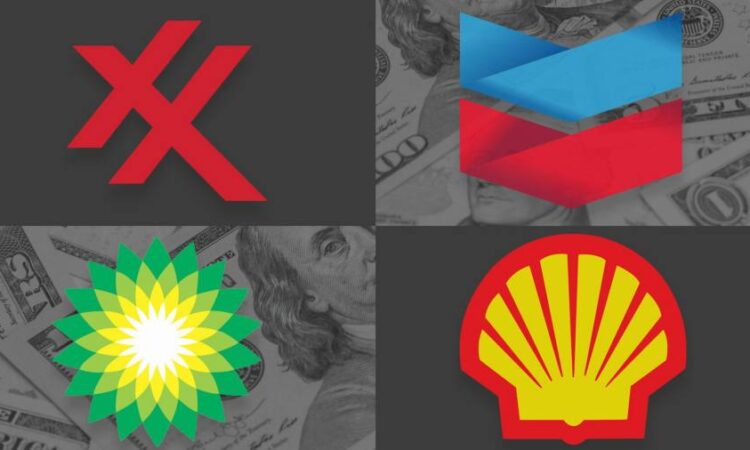
European oil companies are attracting US investors who view them as cheap compared with the likes of ExxonMobil and Chevron after a furious rally in American energy stocks.
The valuation gap between European and US supermajors is luring investors who don’t usually invest in Europe. London-listed BP recently became the second-largest holding at BlackRock’s $19bn US equity dividend fund, for example.
The trend comes as some European fund managers avoid oil companies on environmental grounds.
“Investors in the US are more amenable to energy investments than [fund managers] in Europe,” said Tony DeSpirito, BlackRock’s chief investment officer for US fundamental equities, who manages the equity dividend fund.
Shares in European supermajors are trading at less than half the value of their US rivals when measured as a multiple of their expected profits over the next 12 months. Analysts at JPMorgan Chase say the spread has become “extreme”.

The share prices of most global energy producers have gained this year as high oil and natural gas prices drive bumper profits. But performance has diverged between the regions. The S&P 500 energy sub-index is up 53 per cent in 2022, more than double the 18 per cent rise of Europe’s Stoxx 600 energy sub-index.
Energy stocks have continued to outperform despite a recent reversal in oil prices, with Brent crude falling below $80 a barrel to its lowest levels of the year. Analysts said the resilience partly reflected unexpected strength in the price of natural gas and prices of longer-dated oil futures that have dropped less than spot prices.
US energy companies’ rebound comes after years of underperformance that hit a low point when oil prices collapsed early in the coronavirus pandemic. ExxonMobil reported its first annual loss in more than a century in 2020 and was booted from the Dow Jones Industrial Average. But it reported record profits of nearly $20bn in the third quarter this year, driving its market capitalisation above $400bn.
In Europe, companies have been hampered by a weaker economy, political risks such as windfall taxes and threats like a court ruling that forced Shell to revise its strategy last year. Some investors have also questioned European producers’ greater emphasis on diversifying away from oil and gas by building up new clean energy businesses.
“Investors are saying, ‘You’re good at producing oil, not building wind farms’,” said Andrew Gillick, energy sector strategist at Enverus, a consultancy. “Investors are very clear about what Exxon and Chevron do. It’s not so clear to them any more what BP and Shell want to do.”
At the same time, some European asset managers have screened out oil companies based on environmental, social and governance criteria, given their business of producing planet-warming fossil fuels.
“In Europe the shareholder base is less friendly to oil and gas companies,” said Fred Fromm, a portfolio manager at Franklin Templeton. While the US-based fund group considers environmental factors, “it’s about owning the best companies in an industry, versus thinking about ‘sustainability’ as own or don’t own an entire sector, which is a lot more prevalent in Europe”.
Fromm said he had also been increasing his relative exposure to European energy stocks.
“There’s always been a valuation gap for various reasons, but it is not normally this big,” he said. “Historically it has paid off to make that swap into the less expensive names.”
European supermajors remain huge oil producers. “The business mix is . . . certainly not enough to justify the difference in valuations,” BlackRock’s DeSpirito said.






